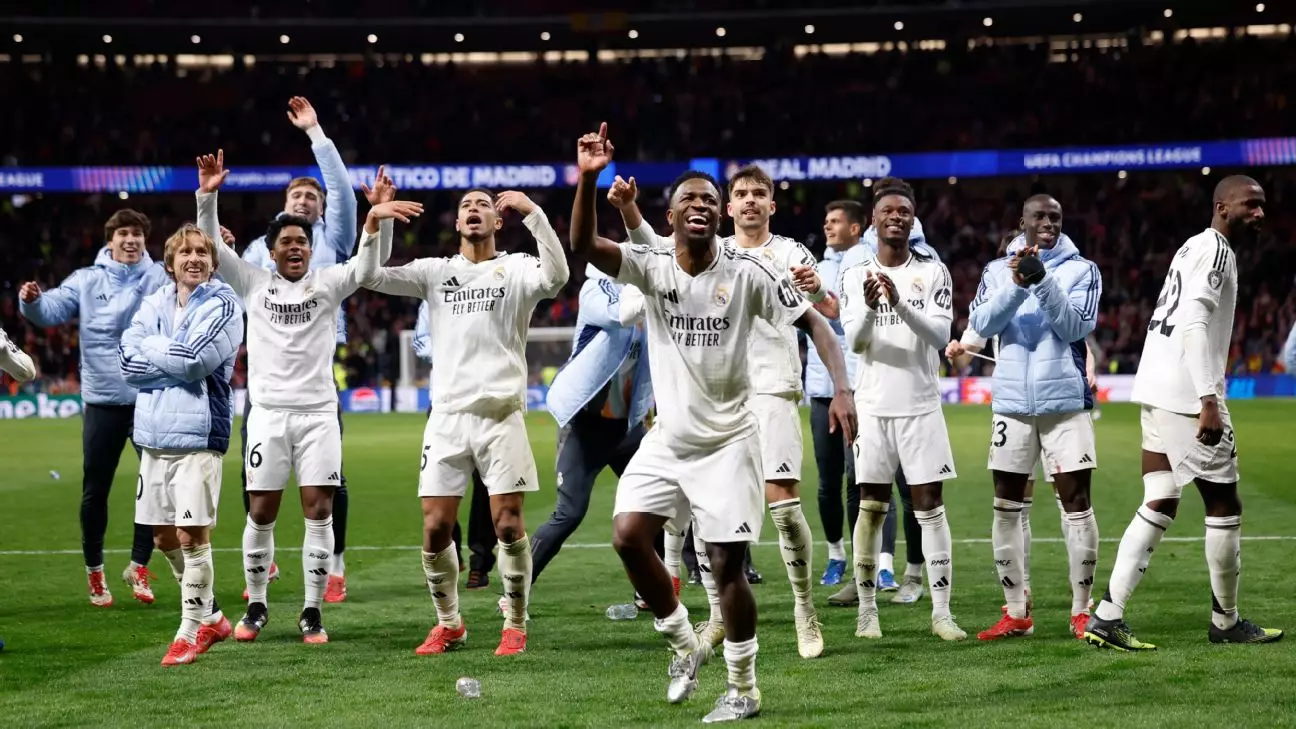In a stunning turn of events, UEFA has opened an investigation into four Real Madrid players following their recent Champions League match against Atlético Madrid. Among those implicated are notable stars Kylian Mbappé and Vinícius Júnior. The controversy stems not from the game’s outcome—where Madrid triumphed in a nail-biting penalty shootout—but from alleged “indecent conduct” exhibited during post-match celebrations. This incident raises serious questions about the ethics governing the sporting world and the often blurred lines between joy and decency.
The Heart of the Allegation
While the exact nature of the allegations remains unspecified, video evidence showing Mbappé engaging in a questionable celebratory gesture—grabbing his crotch—has made its rounds on social media. This action has garnered significant criticism and attention, and echoes prior cases in which players faced severe scrutiny for similar conduct. UEFA’s decision to appoint an ethics and disciplinary inspector to probe these claims indicates a stern stance towards maintaining decorum within football. However, the inquiry’s sincerity must be questioned, considering that ecstatic celebrations frequently walk a fine line between passion and propriety in down-to-the-wire matches.
The Penalty of Perception
What perhaps complicates this issue further is the inconsistency often displayed in UEFA’s handling of disciplinary matters. Take, for example, the case of Jude Bellingham, who received a suspended one-match ban for a similar gesture during the European Championship last year. His situation suggests a double standard in how different players or teams are treated—an inconsistency that undermines the credibility of UEFA as a governing body. If different standards apply based on popularity or club affiliation, it can damage the public’s trust in the institution’s impartiality.
Implications of Disciplined Punishment
Should UEFA choose to enforce a ban on any of the implicated players, the ramifications could significantly affect Real Madrid’s upcoming matches, including their quarterfinal clash with Arsenal and beyond. The notion that a player’s on-field exuberance could potentially result in a suspension is troubling and suggests an overly punitive stance on player behavior. Athletes are expected to channel their emotions during high-stakes competitions, and constraining their ability to express joy can stifle the very essence of sporting excellence.
A Cultural Commentary on Sportsmanship
Ultimately, this controversy forces us to reflect on the cultural norms surrounding sportsmanship in modern football. While the decorum is essential, spontaneous expressions of triumph aren’t inherently disrespectful—they embody the spirit of competition. Clubs and governing bodies must strike a balance between maintaining decorum and letting athletes revel in their hard-earned victories. The scrutiny that players face—especially when leveraging the excitement of a high-stakes match—could deter authentic expressions of joy, fostering a culture of over-analyzed performances in what is first and foremost a game.
In the broader context, this situation serves as a reminder of the pressures athletes face on and off the field, often subject to public and regulatory judgment. The challenge lies not just in adhering to rules but in fostering an environment where players can be themselves—celebrating victories without the looming threat of severe disciplinary action.

